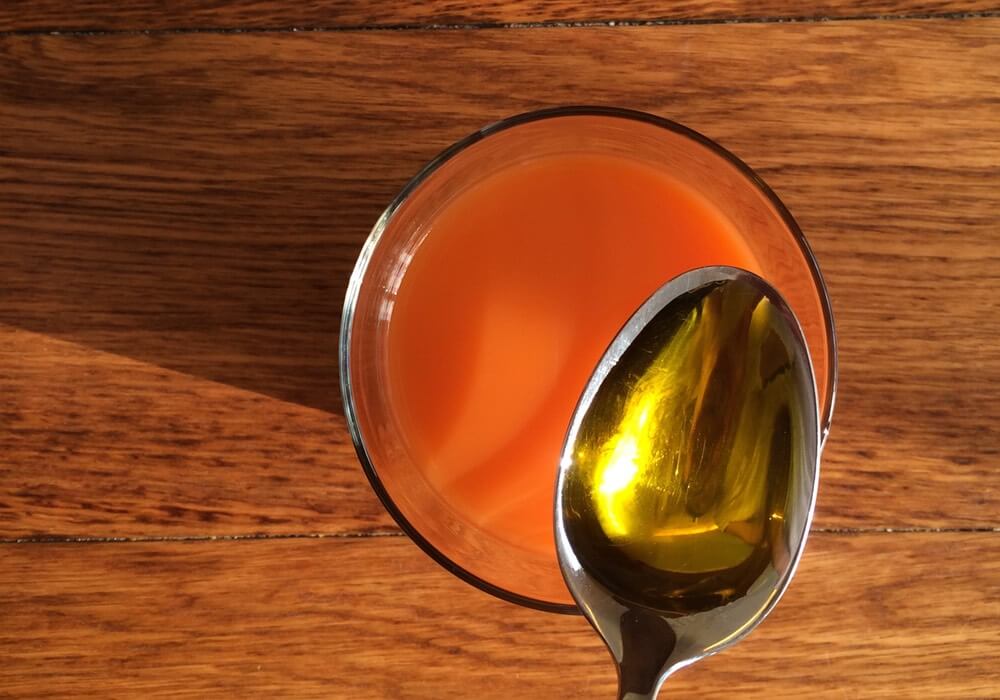Did you know that already a glass of carrot juice a day provides you with many important vitamins and minerals? Because carrots contain a lot of beta-carotene, this is converted in the body to vitamin A, which is why it is also called provitamin A.
Vitamin A is particularly important for the structure of skin and bones, the visual process and a healthy immune system. Since vitamin A is a fat-soluble vitamin, carrots should be consumed with a source of fat (such as a high-quality oil, nuts, or seeds) so that it can be processed well by the body. Likewise, carrots contain vitamin K, which is essential for blood clotting and our bone growth. It also contains potassium, which regulates blood pressure and is involved in muscle activity.
Tip: Process carrots into juice and add linseed oil
If carrots are processed into juice or pureed, the vitamins and minerals contained can be processed even better by the body. For children in particular, a glass of carrot juice is an important nutritional boost, as provitamin A and vitamin K support the growth of bones and skin. The pressed carrot juice should then be refined with a few drops of high-quality oil (e.g. olive or linseed oil). To better absorb the fat-soluble vitamin A in the body, one or two drops of linseed oil are already enough. Why should one take however more to itself?
Why add linseed oil to carrot juice?
Linseed oil not only tastes deliciously nutty and is healthy, but just like carrot juice, it contains many valuable and considered healthy fats, especially omega-3. Omega 3 fatty acids have a positive effect on our cardiovascular system and our joints. Linseed oil is also particularly valuable in terms of its optimal ratio of omega-6 to omega-3 fatty acids. Here it is superior to all other types of oil, even rapeseed oil and olive oil.
Vitamins also occur in the precious and high-quality oil. These supplement those that are also contained in the carrot and make the homemade carrot juice even more valuable and healthier. Thus, linseed oil is rich in vitamin E and vitamin K. Lignans also occur, these are hormone-like substances that have an antioxidant effect and thus protect against free radicals. Linseed oil thus serves to strengthen the immune system, contributes positively to heart health, helps with stomach and intestinal problems, and lowers cholesterol.
Flax oil is a very sensitive oil
When using linseed oil, it is important to store it properly. Linseed oil is a very sensitive oil and reacts to air, light and heat and changes taste quite quickly. Stored incorrectly, it can then also quickly become bitter. An opened bottle of linseed oil should therefore be best stored in the refrigerator in the well-sealed bottle and used up in a month. Good luck trying it out and stay healthy!







